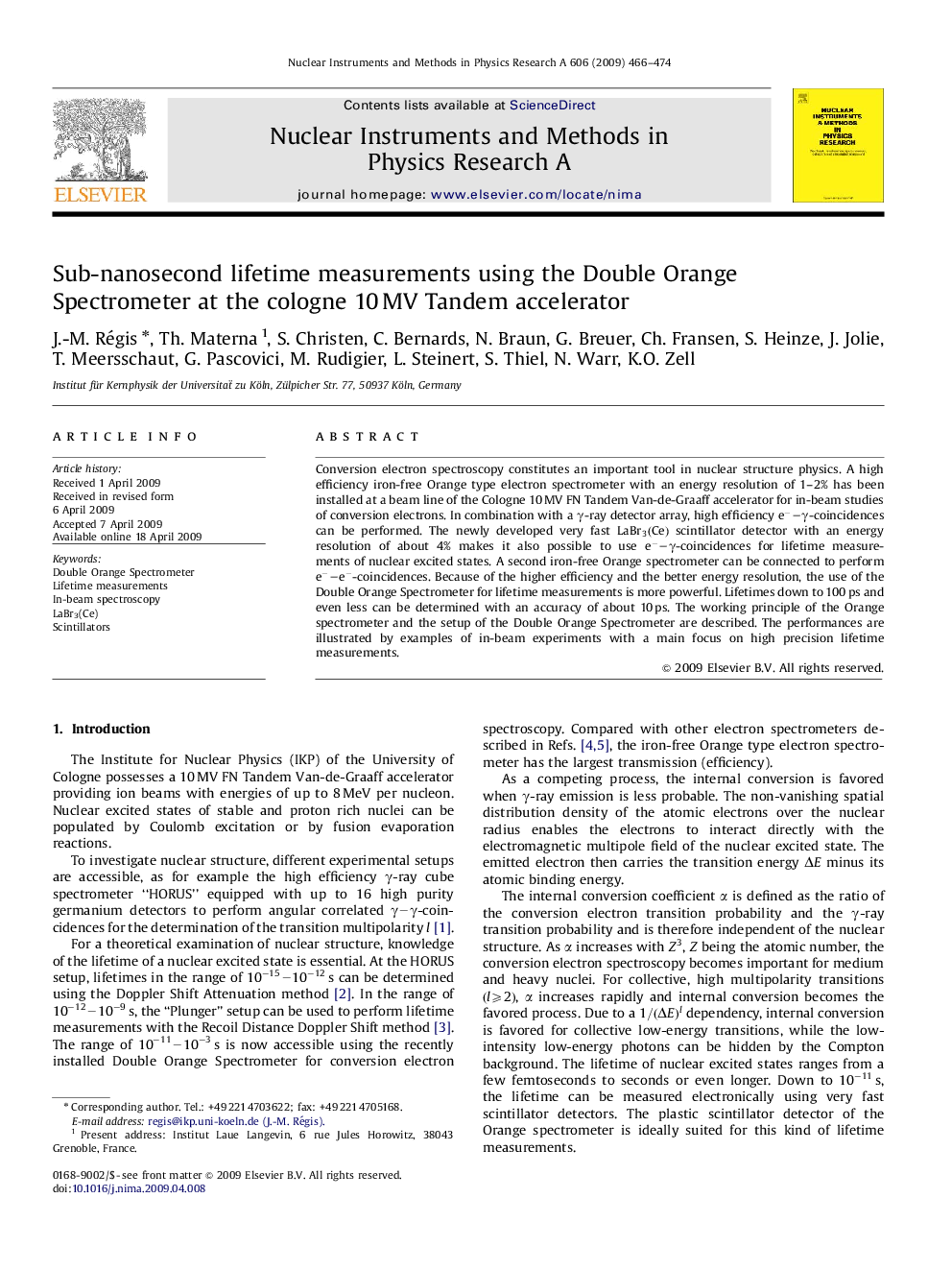| Article ID | Journal | Published Year | Pages | File Type |
|---|---|---|---|---|
| 10715962 | Nuclear Instruments and Methods in Physics Research Section A: Accelerators, Spectrometers, Detectors and Associated Equipment | 2009 | 9 Pages |
Abstract
Conversion electron spectroscopy constitutes an important tool in nuclear structure physics. A high efficiency iron-free Orange type electron spectrometer with an energy resolution of 1-2% has been installed at a beam line of the Cologne 10 MV FN Tandem Van-de-Graaff accelerator for in-beam studies of conversion electrons. In combination with a γ-ray detector array, high efficiency e--γ-coincidences can be performed. The newly developed very fast LaBr3(Ce) scintillator detector with an energy resolution of about 4% makes it also possible to use e--γ-coincidences for lifetime measurements of nuclear excited states. A second iron-free Orange spectrometer can be connected to perform e--e--coincidences. Because of the higher efficiency and the better energy resolution, the use of the Double Orange Spectrometer for lifetime measurements is more powerful. Lifetimes down to 100 ps and even less can be determined with an accuracy of about 10 ps. The working principle of the Orange spectrometer and the setup of the Double Orange Spectrometer are described. The performances are illustrated by examples of in-beam experiments with a main focus on high precision lifetime measurements.
Related Topics
Physical Sciences and Engineering
Physics and Astronomy
Instrumentation
Authors
J.-M. Régis, Th. Materna, S. Christen, C. Bernards, N. Braun, G. Breuer, Ch. Fransen, S. Heinze, J. Jolie, T. Meersschaut, G. Pascovici, M. Rudigier, L. Steinert, S. Thiel, N. Warr, K.O. Zell,
